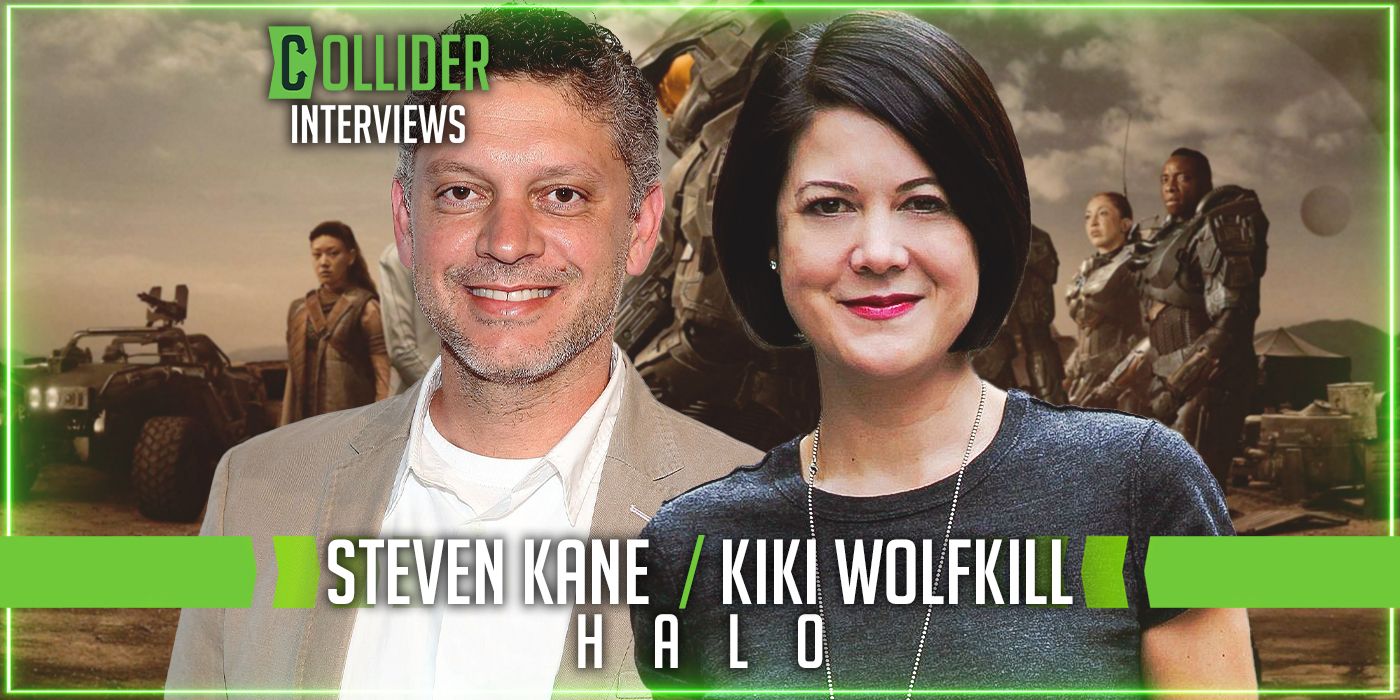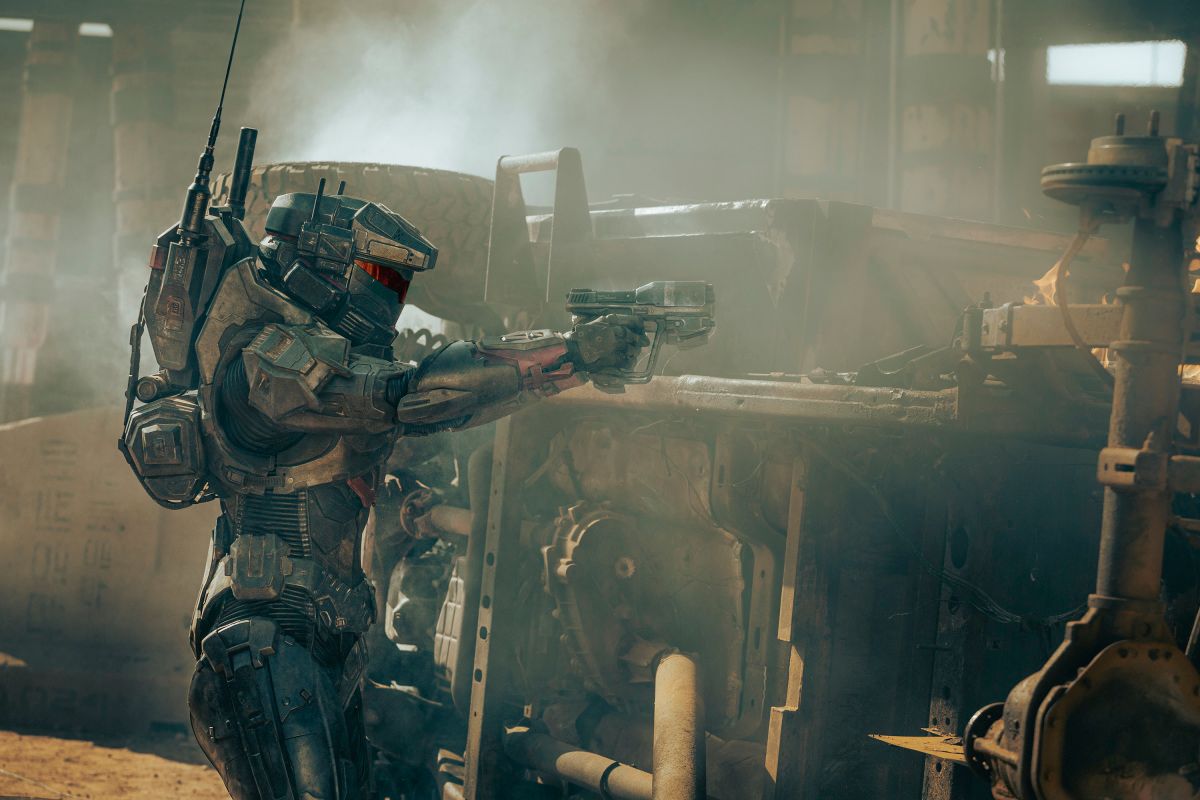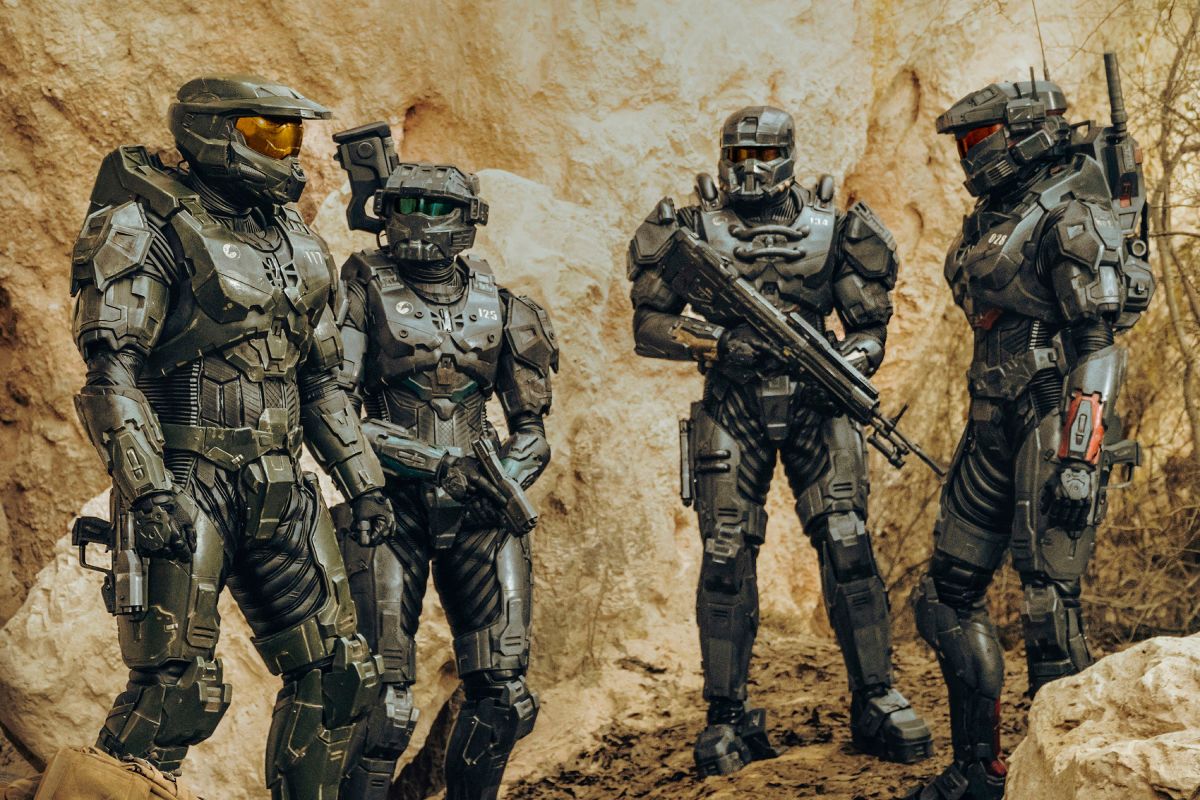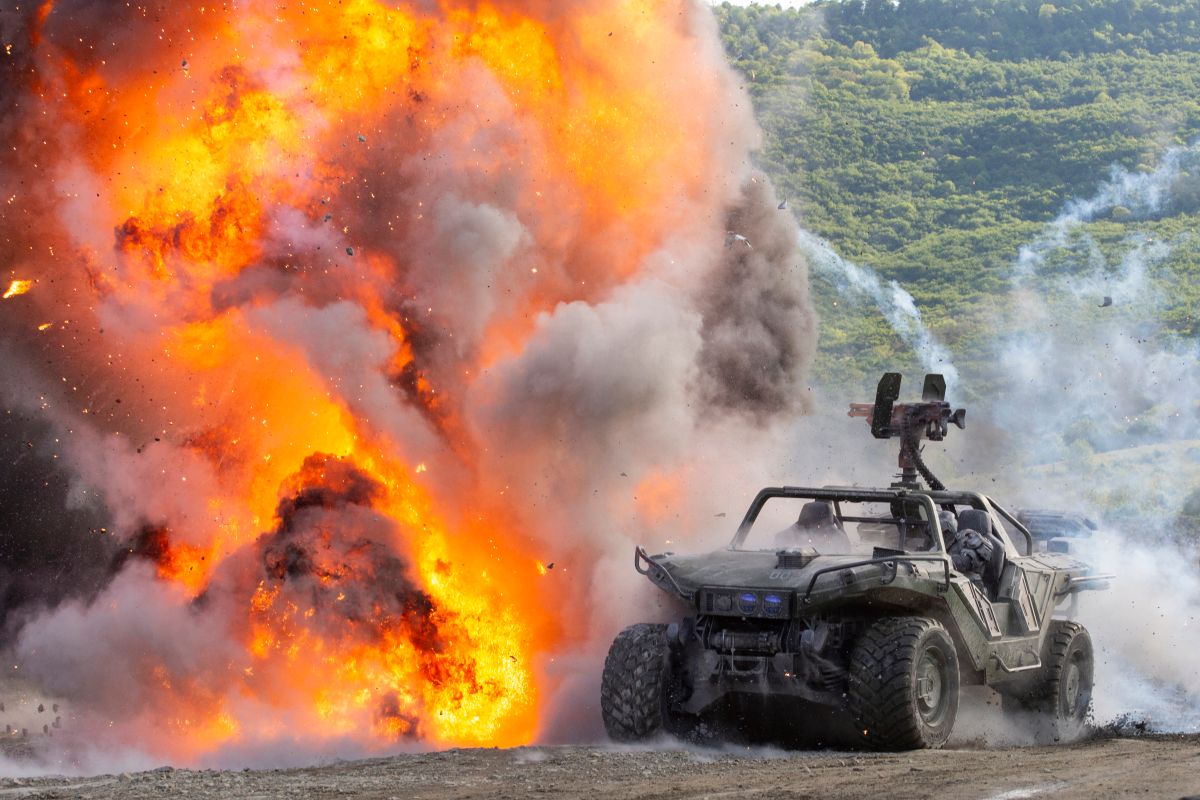With the first episode of the Halo series arriving tonight on Paramount+, I recently got to speak with producers Kiki Wolfkill and Steven Kane about making the highly anticipated series. Based on the video game franchise of the same name, Halo follows a 26th century showdown between humanity and an intergalactic threat known as the Covenant. In an effort to win the war, Dr. Halsey (Natascha McElhone) creates genetically enhanced super-soldiers named the Spartans to combat the alien force. The series follows Master Chief Spartan John-117 (Pablo Schreiber), the commander of a Spartan unit. Although drawing heavily from the video game’s stories, the show takes place in its own timeline.
During the interview, Wolfkill and Kane talked about the decision to have Master Chief take off his helmet on the series, what fans would be surprised to learn about the making of Halo, the challenges of making a series set in the 26th century, Season 2 plans, and more.
Halo is produced by Showtime in partnership with 343 Industries, along with Amblin Television. Halo also stars Jen Taylor, Bokeem Woodbine, Shabana Azmi, Natasha Culzac, Olive Gray, Yerin Ha, Bentley Kalu, Kate Kennedy, Charlie Murphy, Danny Sapani, Ryan McParland, Burn Gorman, and Fiona O'Shaughnessy. Kane (The Last Ship) and Kyle Killen serve as showrunners. Wolfkill, Frank O’Connor, and Bonnie Ross serve as executive producers for 343 Industries.
Check out what they had to say in the player above, or you can read the conversation below.
COLLIDER: I love learning about the behind the scenes of the making of shows, movies, things that you don't read in the press notes. So for both of you, what do you think soon-to-be fans of the Halo series would be surprised to learn about the actual making of the show?
KIKI WOLFKILL: Oh my gosh.
STEVEN KANE: How much fun we actually had? No, that's shouldn't be surprising. How hard it was, maybe.
WOLFKILL: Yeah, I was going to say we have a joke. Well, this is Halo so anything could happen, because I feel like any adversity that could get thrown our way did.
KANE: Yeah.
WOLFKILL: It was such a huge production to begin with. I mean honestly, it was like making multiple feature films, and that's how we approached it... from a production value and scope and scale and talent level of the crew.
KANE: There was never a simple day because-
WOLFKILL: No.
KANE: If you're shooting a scene in a normal television show set in the 21st century, you can say, "Okay, sit in that chair. We'll bring a glass." In 26th century you're like, "Well, what does a chair look like? What does a glass look like? What are they eating? Have you established what this world looks like? Okay, what are they wearing?" I mean, just everything became meetings and questions. So everything you see on the screen is a product of thousands of hours of conversations among different departments building something and then making sure we're all making the same show at the same time, which is what our job was.
WOLFKILL: We don't show a lot of everyday life in the video games.
KANE: Right.
WOLFKILL: So there was a lot of invention from a visual design and production design perspective. But I think really, it was an amazing experience because it was so hard. I remember so well that last day of shooting. We were all in the trenches together and we came out of it feeling triumphant because frankly, we survived.
KANE: We were standing in a puddle of mud.
WOLFKILL: Yeah.
KANE: And saying, "Thanks for three great years," or two...
You've been filming for 10 years. Let's be honest.
WOLFKILL: A third of my life.
KANE: This week for me is three years since I started on the project. I'm still in mixes and visual effects and scoring and everything.
I have to ask you. Because you've been green lit for a second season, for fans that are going to finish, when do you actually think you're going to start filming season two?
WOLFKILL: What we really don't want to do is have two years until the next season. And we're also all very excited to get in there and do all the things that we learned from season one or didn't get to do. So I would say we're eager to get back into production as soon as possible and we're definitely on a path towards production.
Taking a video game, a movie, animation, each thing has to be adapted for its own medium. I personally have no problems with Master Chief taking off his helmet. I think you need it to show Pablo. When he's in a personal moment, he's not going to be sitting there with his helmet on. He's going to take his helmet off. Can you talk about why it was important to you guys that you would show the humanity of these people?
WOLFKILL: I'll start on it, but Steve should speak to the moment because he treated that moment and writing to it with such respect and gravitas. But it wasn't something where from the get-go we said, "His helmet needs to come off." We'd left it open, but it was also always a goal and a priority that this was going to be about Chief's story. And more importantly, it was going to be about John's story because John as a character isn't someone that we explore in the games very much. We do in novels.
So as we started getting into what that evolution looked like and what it meant for John to understand his role as Master Chief and what that means, and frankly his role as a human and the broader question of humanity at stake, it was so clear that we needed to be able to see the person in the helmet and we needed to see John outside of the armor both, I would say, emotionally and physically. Then when it came to the writing of the moment, it was so important that moment reflect why it was important in this story because story's going to drive everything. I think that's an area where Steve really...
KANE: Well, I think Kiki said it great. We didn't just treat it lightly, like he gets on a ship, throws his helmet off and oh, okay. He's taking off his helmet. We leaned into the helmet removal as the wellspring from which the rest of the season progressed, flowed. In a sense, the first season is about John discovering who he is under the helmet.




